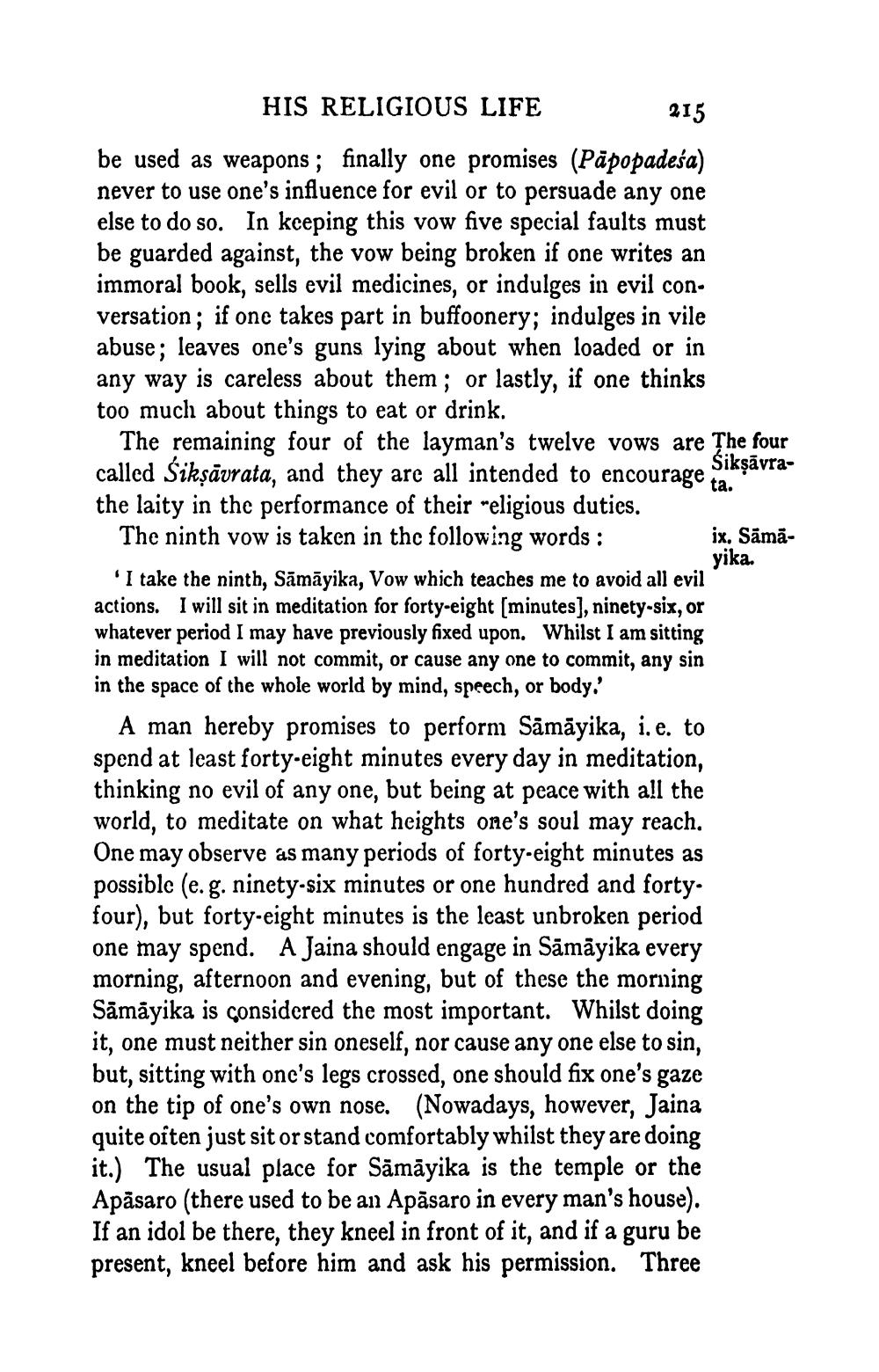________________
HIS RELIGIOUS LIFE
215 be used as weapons ; finally one promises (Pāpopadeśa) never to use one's influence for evil or to persuade any one else to do so. In keeping this vow five special faults must be guarded against, the vow being broken if one writes an immoral book, sells evil medicines, or indulges in evil con. versation; if one takes part in buffoonery; indulges in vile abuse; leaves one's guns lying about when loaded or in any way is careless about them; or lastly, if one thinks too much about things to eat or drink.
The remaining four of the layman's twelve vows are The four called Sikşāvrata, and they are all intended to encourage the
Śikṣāvrathe laity in the performance of their religious duties. The ninth vow is taken in the following words:
ix. Sama
yika. 'I take the ninth, Sāmāyika, Vow which teaches me to avoid all evil actions. I will sit in meditation for forty-eight [minutes), ninety-six, or whatever period I may have previously fixed upon. Whilst I am sitting in meditation I will not commit, or cause any one to commit, any sin in the space of the whole world by mind, speech, or body.'
A man hereby promises to perform Sâmāyika, i.e. to spend at least forty-eight minutes every day in meditation, thinking no evil of any one, but being at peace with all the world, to meditate on what heights one's soul may reach. One may observe as many periods of forty-eight minutes as possible (e. g. ninety-six minutes or one hundred and fortyfour), but forty-eight minutes is the least unbroken period one may spend. A Jaina should engage in Sāmāyika every morning, afternoon and evening, but of these the morning Sāmåyika is considered the most important. Whilst doing it, one must neither sin oneself, nor cause any one else to sin, but, sitting with one's legs crossed, one should fix one's gaze on the tip of one's own nose. (Nowadays, however, Jaina quite often just sit orstand comfortably whilst they are doing it.) The usual place for Sāmāyika is the temple or the Apåsaro (there used to be an Apăsaro in every man's house). If an idol be there, they kneel in front of it, and if a guru be present, kneel before him and ask his permission. Three




